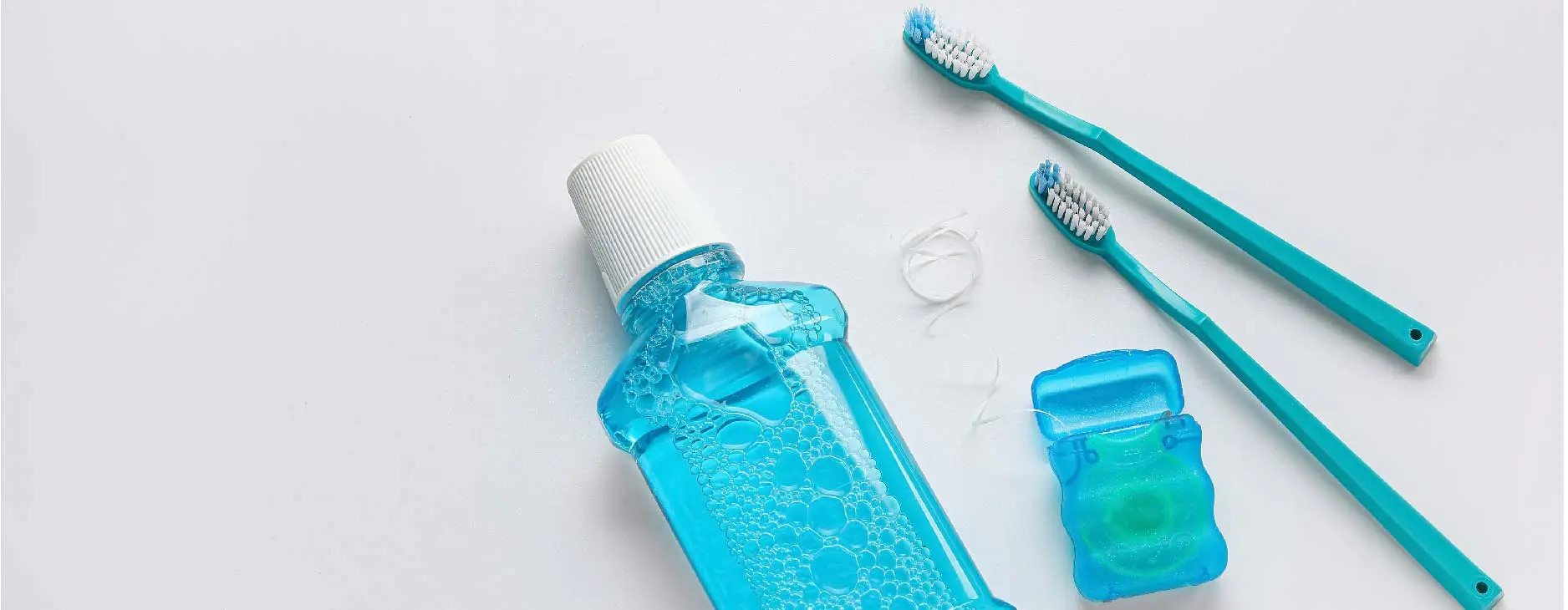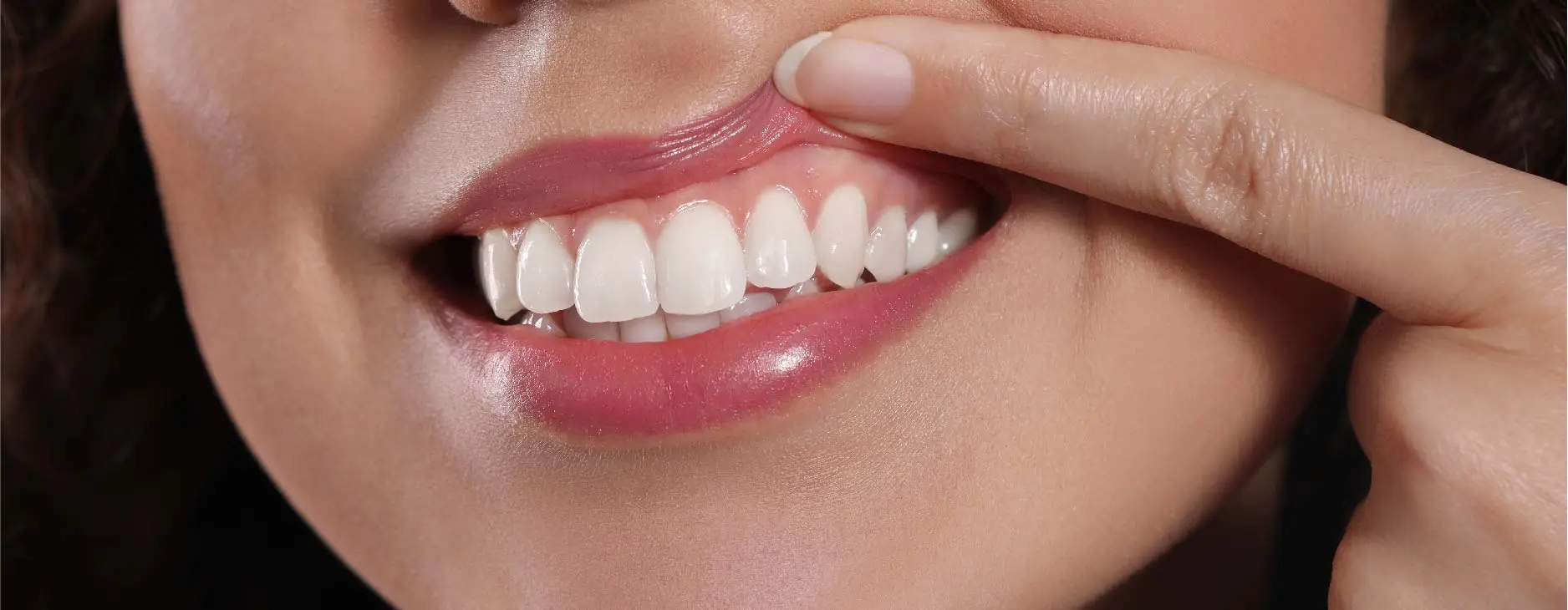Taking care of our teeth and gums is very important for living a healthy life. Therefore, getting regular dental check-ups provides great benefits for our oral health. Achieving excellent oral hygiene helps prevent gum disease and tooth decay. So, how can we protect gum health? In this article, we will explain what needs to be done to keep your gums healthy. We’ll cover the topic from multiple angles and offer valuable advice. Let’s dive in without wasting any time!
How to Protect Gum Health?
Here are the steps you need to take to maintain healthy gums:
1. Regular Oral Care
 Some dental care practices that may seem simple can actually have a direct impact on gum health. The most basic and essential one is brushing your teeth regularly. However, brushing alone may not always be enough. You should also clean between your teeth with dental floss regularly and carefully. Using a mouthwash complements your oral care routine.
Some dental care practices that may seem simple can actually have a direct impact on gum health. The most basic and essential one is brushing your teeth regularly. However, brushing alone may not always be enough. You should also clean between your teeth with dental floss regularly and carefully. Using a mouthwash complements your oral care routine.
When you brush your teeth regularly, you can maintain clean and healthy gums. Therefore, teeth should be brushed at least twice a day. Doing a more detailed oral cleaning 2–3 times a week can further enhance these effects. Otherwise, undesirable results may occur in the mouth. For example, bacteria accumulating on the gums can eventually lead to gum inflammation. Gum bleeding may also occur when the gums weaken.
2. Choosing the Right Products
 The frequency and consistency of your oral care are very important. However, choosing the right products is the foundation of effective care. The material and quality of the products used are essential. For example, soft-bristled toothbrushes should be preferred over hard-bristled ones. Hard bristles can cause gum bleeding.
The frequency and consistency of your oral care are very important. However, choosing the right products is the foundation of effective care. The material and quality of the products used are essential. For example, soft-bristled toothbrushes should be preferred over hard-bristled ones. Hard bristles can cause gum bleeding.
If gum bleeding occurs, that area becomes more susceptible to bacterial growth. Additionally, toothbrushes should be replaced every three months. Bacteria that accumulate on the brush over time can cause infections in the mouth. You should also carefully check the ingredients of oral care products. It’s important to use products that don’t damage the structure of teeth or gums.
3. Regular Dental Check-Ups
 Most of us only go to the dentist when there’s already a problem. However, this is not the right approach. To maintain gum health, you should monitor your gums regularly. This helps you intervene early if you notice any abnormalities.
Most of us only go to the dentist when there’s already a problem. However, this is not the right approach. To maintain gum health, you should monitor your gums regularly. This helps you intervene early if you notice any abnormalities.
Visiting your dentist every few months for a routine check-up is also crucial. You can examine your own gums in the mirror to check for changes in color and texture. This allows you to catch early signs before they worsen.
What Should Be Done to Protect the Gums?
To protect your gums, it’s important to prevent potential issues from developing in the first place. Following a few simple and easy steps can help you maintain healthy gums. With proper gum care, you can prevent gum diseases.
-
Use Dental Floss: Toothbrushes cannot reach all areas of your teeth, especially between the teeth. Dental floss helps remove food particles from those hard-to-reach spots. Doing this after meals is an important step toward healthy teeth and gums.
-
Get Regular Dental Cleanings: Periodic dental check-ups help detect and prevent potential gum problems. Your dentist can identify issues you might not notice—such as gum recession. If plaque or tartar is present, your dentist will remove it, supporting healthier gums.
-
Avoid Smoking: Smoking significantly harms gum health. It weakens the immune system, making it harder to fight off gum diseases. Damaged gum tissue is also difficult to heal. Smoking also negatively impacts overall oral hygiene.
-
Brush After Every Meal: Many people only brush their teeth once a day, usually at night. However, this is not ideal. Everything we eat during the day accumulates on our teeth and gums. Not cleaning them promptly affects gum health. Brushing after every meal helps prevent plaque and bacteria build-up. Also, remember to replace your toothbrush every 3–4 months.
-
Check Toothpaste Ingredients: Not all toothpaste formulas are beneficial. Some can do more harm than good. Be selective with your toothpaste and choose one that contains fluoride—it supports gum health.
-
Use Mouthwash: Using mouthwash helps reduce plaque and gum inflammation. It also decreases tartar formation and helps remove food debris more effectively. However, mouthwash alone is not enough; brushing and flossing are still essential.
Why Is Gum Health Important?
If poor oral health is left untreated, it can lead to serious consequences. Gum disease is one of those outcomes. If not kept under control, gum disease can lead to major complications, including tooth loss and infections. In advanced cases, it can even lead to heart disease, diabetes complications, or stroke. Respiratory issues are also linked to poor gum health.
What are the most common problems that occur in the gums?
-
Gingivitis (Gum Inflammation): Caused by the accumulation of bacteria in the mouth. If addressed early, it doesn’t usually cause permanent damage but is still uncomfortable.
-
Gum Recession: Affects the bone structure that supports the teeth. It's an advanced form of gum disease and can destroy the tissue supporting the teeth if untreated. In late stages, teeth may not function properly for biting.
-
Gingivitis (Repeated): Causes bleeding, redness, and bad breath. If untreated, it can lead to gum recession.
-
Necrotizing Periodontal Diseases: Serious gum diseases that must be treated. If left untreated, they can cause bone loss. Common in people who smoke, neglect oral hygiene, or have AIDS. Symptoms include intense pain.
-
Gum Abscess: Often results from a foreign object stuck in the gums. The gum becomes red and swollen. Without treatment, bacteria spread and damage deeper tissues. Symptoms include bleeding, foul-smelling discharge, and a purplish gum color.
Frequently Asked Questions About Gum Health
Can gums heal themselves?
No, gums do not regenerate naturally. If your gums are damaged, you must consult a professional.
Are vitamins necessary for gum health?
Yes, especially if you are deficient in vitamin D and K2, supplements may support gum health.
What soothes gum pain?
Gargling with salt water helps. Applying ice to the painful area or rubbing it with clove may provide relief.
How can I strengthen my gums?
Natural remedies like miswak, rock salt, tea tree oil, baking soda, and cloves may help tighten gums and prevent recession.
Which vitamins support gum health?
Vitamins C, A, D, and K are essential for maintaining healthy gums.
Is salt water good for gums?
Yes, salt is naturally antibacterial. Gargling with salt water can reduce inflammation and relieve pain, especially during infections.
How can I strengthen weak gums?
Brush teeth at least twice a day, use dental floss, and have regular dental check-ups. This allows early intervention and increases treatment success.
Eating dairy products like milk, yogurt, and cheese also benefits gum health due to their high calcium and phosphorus content, which support enamel and mineral formation.
Is vitamin C good for gums?
Yes, vitamin C is crucial for tissue repair and supports the attachment of teeth to the gums. Adequate intake strengthens weak gums and boosts resistance to bacteria.
















































